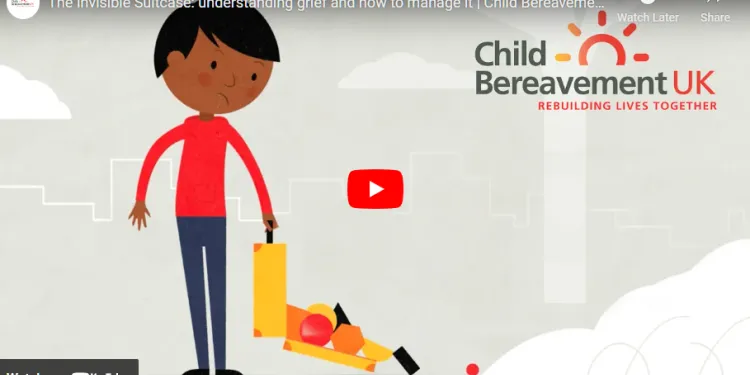
Find A Professional
More Items From Ergsy search
-

How are parents involved in the SEND process?
Relevance: 100%
-

What support is available outside of school for SEND children?
Relevance: 79%
-

What support is available for SEND children in schools?
Relevance: 77%
-

Who are SEND children?
Relevance: 75%
-

Can SEND children access extracurricular activities?
Relevance: 73%
-

What are SEND children?
Relevance: 72%
-

Understanding Parental Rights in Light of New UK Child Protection Legislation
Relevance: 69%
-

How is progress measured for SEND children?
Relevance: 67%
-

What is the role of parental monitoring in children's screen time and sleep?
Relevance: 66%
-

Navigating Legal Guardianship and Parental Responsibility in the UK
Relevance: 66%
-

Upcoming Changes to Parental Leave Policies in the UK
Relevance: 65%
-

What are some common misconceptions about SEND?
Relevance: 65%
-

Child Care Proceedings | Family Law
Relevance: 64%
-

Navigating Child Custody and Visitation Rights in Modern UK
Relevance: 64%
-

Can SEND status change over time?
Relevance: 64%
-

Do SEND children attend mainstream schools?
Relevance: 64%
-

Who is responsible for assessing SEND needs?
Relevance: 63%
-

Child Bereavement
Relevance: 63%
-

Children Act 1989 section 20 - Legislation
Relevance: 62%
-

Are there specific laws governing SEND in schools?
Relevance: 61%
-

Navigating the Changes to Parental Leave Regulations
Relevance: 60%
-

What does SEND stand for?
Relevance: 57%
-

How can parents advocate for their SEND child?
Relevance: 57%
-

Navigating Child Custody Laws in the UK
Relevance: 54%
-

Can children get NHS dentist appointments?
Relevance: 51%
-

What role do teachers play in supporting SEND children?
Relevance: 51%
-

How do funding and resources affect SEND support?
Relevance: 49%
-

How can schools create an inclusive environment for SEND children?
Relevance: 49%
-

Can children take the same cold medications as adults?
Relevance: 49%
-

Can children benefit from chiropractic care?
Relevance: 49%
-

How can parents provide feedback on school meals?
Relevance: 47%
-

Dyspraxia Children: How to Help
Relevance: 46%
-

Can children receive the flu vaccine as a nasal spray?
Relevance: 46%
-

Is childhood obesity a concern in the United Kingdom?
Relevance: 44%
-

Are children more affected by new variants of COVID?
Relevance: 44%
-

Can children develop hay fever?
Relevance: 43%
-

Evidence-Based Interventions: grommets for glue ear in children
Relevance: 43%
-

Which medication should be avoided for children with fevers?
Relevance: 43%
-

Are children more affected by screen time in relation to sleep than adults?
Relevance: 43%
-

Understanding Mental Health in Children
Relevance: 42%
Understanding SEND and the Importance of Advocacy
In the UK, children with Special Educational Needs and Disabilities (SEND) are entitled to receive support to help them achieve their full potential. The role of parents as advocates is critical in navigating the education system and ensuring that their child’s needs are met effectively. Advocacy involves understanding the rights of the child, the responsibilities of schools and local authorities, and actively participating in decision-making processes.
Know Your Child’s Rights
Parents should become familiar with the legal framework surrounding SEND, particularly the Children and Families Act 2014, which includes provisions for Education, Health and Care Plans (EHCPs). Understanding these rights will enable parents to ensure their child receives the necessary support and accommodations. The SEND Code of Practice provides guidance on the duties of local authorities, health bodies, and educational institutions in supporting children and young people with SEND.
Engage with the School
Building a positive relationship with the school is essential. Attend meetings, ask questions, and ensure regular communication with teachers and special educational needs coordinators (SENCOs). Parents should feel empowered to discuss their child’s progress and any concerns they might have, and collaborate with the school to develop and review Individual Education Plans (IEPs) or EHCPs. Establishing a partnership with educators can facilitate a better understanding of the child’s needs and how they can be met within the school environment.
Utilize Local Support Services
Many local authorities offer support services for families with SEND children. These can include parent support groups, information sessions, and advocacy services. Parents should take advantage of these resources to build a support network, gain information, and share experiences with other families in similar situations. Local SEND Information, Advice, and Support Services (SENDIASS) can provide impartial advice and help parents understand the SEND process.
Keep Organized Records
Maintaining detailed and organized records of all communications, reports, assessments, and meetings is crucial. This documentation can be invaluable when discussing your child’s needs with professionals or if you need to challenge any decisions made by the school or local authority. Records should include copies of all plans, communications with the school, and notes from meetings.
Seek Specialist Advice When Necessary
At times, appealing decisions or navigating complex situations may require expert advice from solicitors or education specialists. Parents can seek advice from charities and organizations specializing in SEND advocacy. These organizations can offer guidance on legal rights, help with preparing appeals, and provide representation if needed.
Staying Informed and Empowered
Education on SEND issues should be an ongoing process. Parents are encouraged to attend workshops, read current literature, and stay updated on policy changes. Knowledge empowers parents to advocate effectively and participate meaningfully in the education and care of their child. By staying informed, building relationships, and utilizing available resources, parents can advocate successfully for their SEND child’s needs.
Understanding SEND and the Importance of Advocacy
In the UK, children with Special Educational Needs and Disabilities (SEND) get extra help to learn and do their best. Parents are very important because they help their child get this support. This means knowing what their child can get, what schools should do, and being part of making decisions for their child.
Know Your Child’s Rights
Parents should learn about the rules for SEND in the Children and Families Act 2014. This law talks about plans called Education, Health and Care Plans (EHCPs). Knowing about these helps parents make sure their child gets the help they need. The SEND Code of Practice is a guide that explains what schools and others must do to help children with SEND.
Engage with the School
It is very important to talk to your child’s school. Go to school meetings, ask questions, and talk often with teachers and special educational needs coordinators (SENCOs). Parents can talk about their child’s progress and work with the school to make or check plans like Individual Education Plans (IEPs) or EHCPs. Working together with the school helps them understand how to meet your child’s needs.
Utilize Local Support Services
Your local area may have groups that help families with SEND children. These could be support groups, information days, and services that help families speak up for their child. Use these to meet other families, learn new things, and get advice. Local SEND Information, Advice, and Support Services (SENDIASS) can give free advice and help parents understand how SEND support works.
Keep Organized Records
It is important to keep neat and clear records of all talks, reports, and meetings. These records help when discussing your child’s needs with schools or if you need to ask them to change a decision. Keep copies of all plans, notes from meetings, and any messages to and from the school.
Seek Specialist Advice When Necessary
Sometimes you may need help from experts like lawyers or education specialists to understand decisions or get through difficult processes. Charities and groups that know a lot about SEND can help. They can explain your rights, help make appeals, and represent you if needed.
Staying Informed and Empowered
Learning about SEND should never stop. Parents can go to workshops, read books, and keep up with any changes to the rules. Knowing a lot helps parents speak up and be part of their child’s education and care. By learning more, talking to schools, and using all available help, parents can support their SEND child effectively.
Frequently Asked Questions
Useful Links
- Ergsy carfully checks the information in the videos we provide here.
- Videos shown by Youtube after a video has completed, have NOT been reviewed by ERGSY.
- To view, click the arrow in centre of video.
- Most of the videos you find here will have subtitles and/or closed captions available.
- You may need to turn these on, and choose your preferred language.
- Go to the video you'd like to watch.
- If closed captions (CC) are available, settings will be visible on the bottom right of the video player.
- To turn on Captions, click settings .
- To turn off Captions, click settings again.
More Items From Ergsy search
-

How are parents involved in the SEND process?
Relevance: 100%
-

What support is available outside of school for SEND children?
Relevance: 79%
-

What support is available for SEND children in schools?
Relevance: 77%
-

Who are SEND children?
Relevance: 75%
-

Can SEND children access extracurricular activities?
Relevance: 73%
-

What are SEND children?
Relevance: 72%
-

Understanding Parental Rights in Light of New UK Child Protection Legislation
Relevance: 69%
-

How is progress measured for SEND children?
Relevance: 67%
-

What is the role of parental monitoring in children's screen time and sleep?
Relevance: 66%
-

Navigating Legal Guardianship and Parental Responsibility in the UK
Relevance: 66%
-

Upcoming Changes to Parental Leave Policies in the UK
Relevance: 65%
-

What are some common misconceptions about SEND?
Relevance: 65%
-

Child Care Proceedings | Family Law
Relevance: 64%
-

Navigating Child Custody and Visitation Rights in Modern UK
Relevance: 64%
-

Can SEND status change over time?
Relevance: 64%
-

Do SEND children attend mainstream schools?
Relevance: 64%
-

Who is responsible for assessing SEND needs?
Relevance: 63%
-

Child Bereavement
Relevance: 63%
-

Children Act 1989 section 20 - Legislation
Relevance: 62%
-

Are there specific laws governing SEND in schools?
Relevance: 61%
-

Navigating the Changes to Parental Leave Regulations
Relevance: 60%
-

What does SEND stand for?
Relevance: 57%
-

How can parents advocate for their SEND child?
Relevance: 57%
-

Navigating Child Custody Laws in the UK
Relevance: 54%
-

Can children get NHS dentist appointments?
Relevance: 51%
-

What role do teachers play in supporting SEND children?
Relevance: 51%
-

How do funding and resources affect SEND support?
Relevance: 49%
-

How can schools create an inclusive environment for SEND children?
Relevance: 49%
-

Can children take the same cold medications as adults?
Relevance: 49%
-

Can children benefit from chiropractic care?
Relevance: 49%
-

How can parents provide feedback on school meals?
Relevance: 47%
-

Dyspraxia Children: How to Help
Relevance: 46%
-

Can children receive the flu vaccine as a nasal spray?
Relevance: 46%
-

Is childhood obesity a concern in the United Kingdom?
Relevance: 44%
-

Are children more affected by new variants of COVID?
Relevance: 44%
-

Can children develop hay fever?
Relevance: 43%
-

Evidence-Based Interventions: grommets for glue ear in children
Relevance: 43%
-

Which medication should be avoided for children with fevers?
Relevance: 43%
-

Are children more affected by screen time in relation to sleep than adults?
Relevance: 43%
-

Understanding Mental Health in Children
Relevance: 42%